In southern and northern Lebanon, on plots no higher than 500m above sea level, avocado cultivation is undergoing a remarkable revolution. Annually, that acreage grows by about 200 hectares and yields by around 2,500 tons. Yet, the extraordinary thing is that one man is driving the expansion of this in a sector that has actually always existed in Lebanon but that has, for too long, remained a local endeavor.
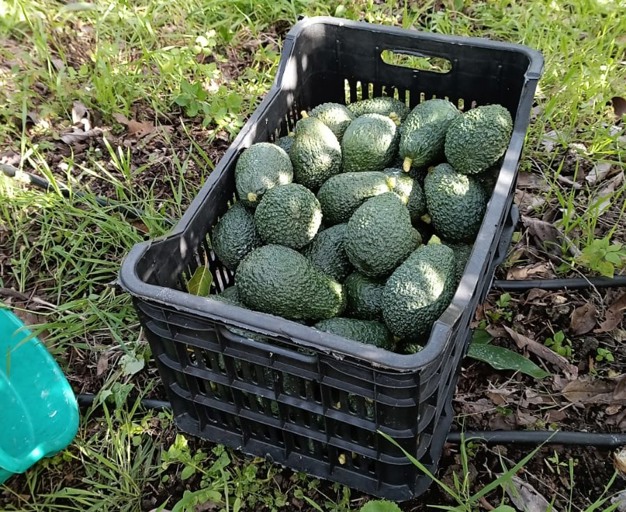
"Many Lebanese citrus growers have some avocado trees, but those average yields fall far short of their production potential," begins Mohamad Hijazi, grower, motivator, and point of contact for that country's avocado sector. "I started growing avocados in 2000 because, at that time, its market was more stable than the citrus market. Like everyone else, I cultivated it using my experience with citrus. That was until I worked through some courses at the University of California Riverside in 2003 and began adapting my approach in many areas. With improved growing techniques, irrigation, and fertilization, I got four times the yield from my 400 trees within a year."
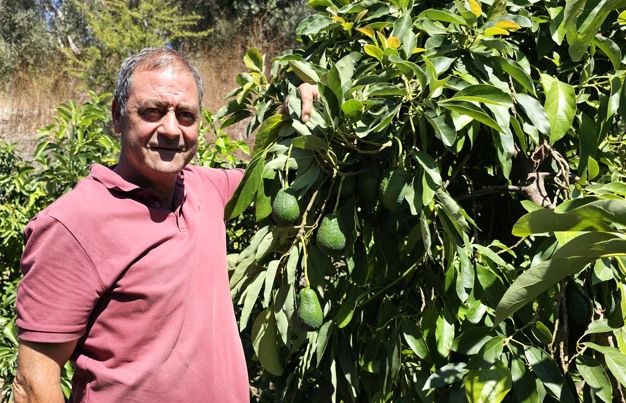
Mohamad quickly became regionally known as an avocado grower with excellent results
USAID expert
Mohamad quickly became regionally known as an avocado grower with excellent results, and other growers began coming to him for advice. Ten years later, USAID prepared a statistical report on avocado cultivation and marketing in Lebanon. In Mohamad, they found the right man to guide them through the Lebanese sector. He was hired as an expert, traveled all over the country collecting data, and observed that few avocado growers achieve acceptable average yields. They lack the expertise to boost productivity.
Mohamad started his cultivation and export company, Lebanese Avocado, in 2014. With USAID's support, he began focusing on providing advice and technical assistance to other avocado growers. In three years, according to the now consultant, the country's avocado yields grew substantially, thanks primarily to increased productivity. Growers no longer cultivated some avocados alongside citrus; they began focusing specifically on this promising crop.
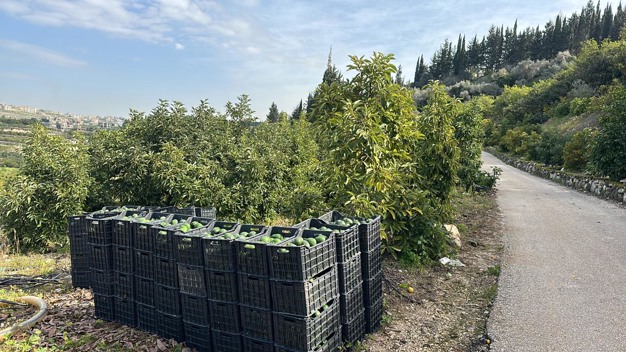
International support
The USAID project ended in 2018, and several cultivation technicians became proficient in avocado cultivation in Mohamad's wake. A new initiative was launched in Akkar, in northern Lebanon, with the French government and the René Moawad Foundation's (RMF) support to further expand avocado acreage. It is the same story as in the country's south: where previously mainly citrus grew, you now see more and more avocado orchards springing up.
In 2019, the Dutch government, too, entered the fray via the CBI with their expertise. The focus was and is - the project is ongoing - not on cultivation, but on supply chain support, coaching them and connecting them directly to the traders. Obtaining the necessary certifications for export is of great benefit, including GlobalG.A.P. and BRC for the packing stations . Besides cultivation, packaging, and export, the sector is already considering further added value, like through processing of avocados into guacamole.
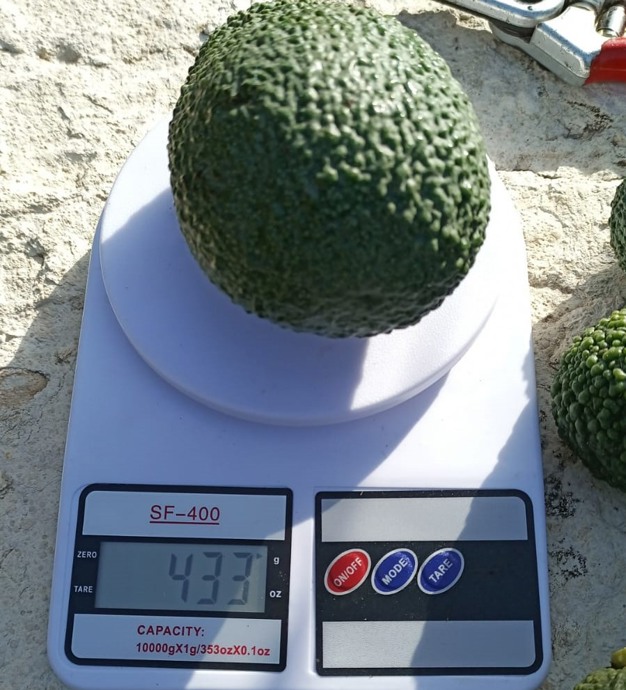
Welcome presence at Fruit Logistica
To streamline everything, Hijazi and some 20 other growers, who are also GLOBALG.A.P. certified, formed the Lebanese Avocado Cluster. Its bylaws state it has one primary objective: export to Europe. Earlier this year, with the support of the CBI and RMF, the group had a noted presence, in that sense, at Fruit Logistica. There was a great interest in Lebanese avocados, and several samples were subsequently sent to interested companies, even resulting in some export contracts.
Fuerte taking the lead
According to the UN's Food and Agriculture Organization (FAO) data, Lebanese growers harvested 19,000 tons of avocados in 2021, of which 7,700 tons were exported. Mohamad says roughly 30% of the harvest is of the Fuerte variety, 30% Pinkerton, 20% Lamb Hass, 10% Hass, and the rest, other varieties like Gem Hass, Reed, and Wurtz. Fuerte leads the harvesting and export calendar in November. The first Hass avocados, the most sought-after variety on the European market, were usually harvested around March. However, in recent years, export quality with the correct dry matter content is achieved as early as December or January.
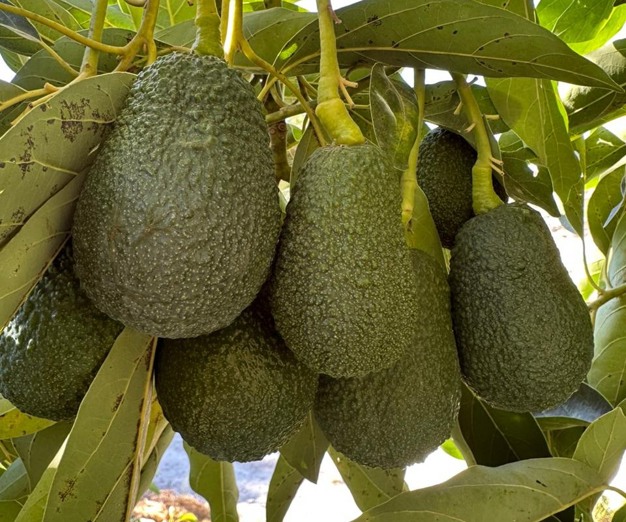
Roughly 30% of the harvest is of the Fuerte variety, 30% Pinkerton, 20% Lamb Hass, 10% Hass, and the rest, other varieties like Gem Hass, Reed, and Wurtz
Local consumption is some 3,000 tons, but with Lebanon's dwindling purchasing power, avocado demand, still one of the most expensive fruits, has declined. Fuerte, Pinkerton, and Lamb Hass are mainly destined for the Gulf States, although some Lamb Hass were sold in Europe last year. For now, Lamb Hass is losing out to Hass avocados with European customers. There are two reasons: it is trickier to ripen and, as a late variety (harvest from April), it does not, like Hass, enjoy the favorable January to March marketing window when there is less overseas supply.
Hass or Lamb Hass?
Nonetheless, Hass avocado cultivation, says Mohamad, is somewhat more challenging, especially regarding fungi and pest pressure. You must use more plant protection products than when growing Lamb Hass, which seems to suffer little from diseases or insects. And even if European clients prefer Hass, a prerequisite, of course, is that it meets GLOBALG.A.P. standards. Along these lines, the Avocado Cluster is now conducting a promising trial of inoculated Hass that requires fewer plant protection products and could even be harvested starting in November. If the experiment is successful, Lebanese growers will undoubtedly widely roll out this variety.
With export to Europe as its goal, the Lebanese Avocado Cluster wants to unite as many avocado growers around this project. To also homogenize the many small-scale growers' products, Mohamad is pitching himself as an advisor on growing techniques, irrigation, fertilization, and crop protection via various channels, such as publishing articles for the sector, a Facebook page, and a WhatsApp group for members.
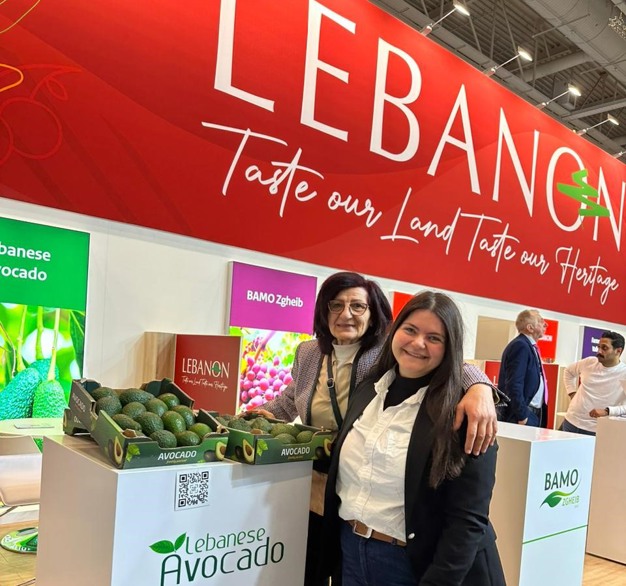
Multiple markets
Last season, Lebanon shipped approximately 1,000 tons of avocados to the European market. They aim to double that this season, and Mohamad hopes to reach 10,000 tons within five years. He estimates market demand in the Gulf states at 35,000 tons. In other words, the market opportunities still offer plenty of room to expand Lebanon's acreage further and boost productivity.
Lebanon has a major advantage and distinctive trait: compared to its neighbors, Israel, Egypt, and Turkey, Lebanon's tremendously low disease and pest pressure mean its growers use minimal plant protection products. And although Israel's production is much higher (a yield of 165,000 tons by 2021, according to FAO), Lebanon is catching up. That is partly due to the crop's high-tech content and partly to a 40-year-old tradition. According to Mohamad, Israel seems to be increasingly focusing on the Japanese market, which offers chances for Lebanese avocados in Europe. Price-wise, Lebanon is somewhere between Israel and Kenya.
Also, says the expert, the demand for Lamb Hass and greenskins has recently risen dramatically from countries like Turkey, Egypt, and especially Morocco. "Our future seems assured. And if the Cluster, supported by the RMF, can realize a packing facility in southern Lebanon - the largest growing region - we're set. When new growers ask which variety is best to plant, I say Lamb Hass. For many, it still offers the most guarantees. It's easy to cultivate and, even if you don't have GLOBALG.A.P. certification, you can still reach several markets with it, including the Gulf States," Mohamad concludes.
Lebanese Avocado will be at the upcoming Fruit Attraction in Madrid in Hall 1, stand 1C10.
For more information:
Mohamad Hijazi
Lebanese Avocado
Sidon, Lebanon
Tel: +961 354 29 27
Email: ibrahimhijazi@hijazibros.net
farah.hijazi97@hotmail.com
